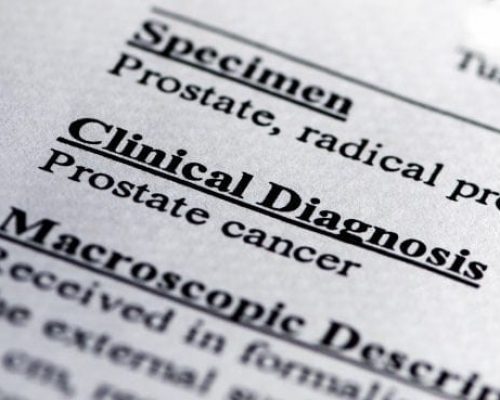
Is Frequent Urination a Sign of Prostate Cancer?
Frequent urination can be a common experience, but when it becomes disruptive, it may indicate an underlying condition. At Regional Cancer Care Associates (RCCA), we
HIPAA Alert: Potential Data Breach Learn More
Questions on Oncology, Hematology and/or Infusion Clinical Services due to COVID-19 Crisis – CALL 833-698-1623
Important Information for Our Patients Regarding the Coronavirus.
RCCA Providing Area Cancer Patients with Access to Care During Coronavirus Outbreak
RCCA Offering Patients Virtual Visits During Coronavirus Pandemic
Besides skin cancer, no cancer affects more American men than prostate cancer. According to the American Cancer Society, approximately one in every eight men will develop prostate cancer. Given the prevalence of this disease, finding an experienced and compassionate oncologist is crucial. The oncologists and hematologists at Regional Cancer Care Associates in New Jersey, Connecticut, Maryland, and the Washington, D.C., area provide the most advanced treatments available, helping patients with prostate cancer and other types of cancer and blood disorders obtain the best possible outcomes.

Typically, prostate cancer causes no symptoms during its initial stages. However, as the disease advances, a patient may experience the following signs and symptoms:
Because many of these signs may indicate other diseases or disorders, patients should always consult their physician if they notice changes in their urinary habits.
Prostate cancer begins when healthy cells in the prostate mutate and begin to grow uncontrollably. The following risk factors increase a person’s likelihood of developing the disease:
While it is rare for men to develop prostate cancer before 40, this risk rises significantly once they reach 50 years. According to the American Cancer Society, the median age at prostate cancer diagnosis in the United States is 67 years, meaning that one-half of men are younger than 67 at diagnosis and the other half are older than 67.
Men of Caribbean and African descent are more likely to develop prostate cancer than Caucasian men, while Latino men are less at risk. Additionally, men living in North America, Australia, the Caribbean, and Northwestern Europe develop the disease more often than those living elsewhere.
Men with inherited gene changes, such as CRCA2 mutations, tend to be at greater risk for prostate cancer than others. If a close family member, such as a brother or son, develops the disease, a man is at a higher risk.
Several other factors may increase risk for prostate cancer, but further research is required to confirm their impact. These include:

Following a prostate cancer diagnosis, a doctor will use the TNM staging system to determine and classify the extent of the disease in a particular patient. T means tumor, N means lymph node, and M means metastasis, and each letter represents an aspect of the cancer’s progression. The following are the four main stages of prostate cancer:
The survival rate for patients with prostate cancer is high, provided the disease has not spread to further areas of the body. The 5-year relative survival rate for patients with early-stage prostate cancer in whom cancer either does not spread outside the organ or reaches only nearby structures and lymph nodes is more than 99%. However, if the cancer does move to other areas of the body, the 5-year survival rate dips to 31%. This wide gap underscores the importance of early detection and treatment of prostate cancer. Patients can learn more about stages and survival rates at Regional Cancer Care Associates.
RCCA’s specialists determine the best treatment plan for each prostate cancer patient by looking at the stage of the disease, the man’s overall health, and other considerations. Treatment options for prostate cancer include:
Patients searching for comprehensive prostate cancer care may turn to Regional Cancer Care Associates for advanced treatment solutions. The oncologists and hematologists of RCCA serve patients at 25 care centers across New Jersey, Connecticut, Maryland, and the Washington, DC area. Contact Regional Cancer Care Associates to learn more about treatment for prostate cancer and other cancers or blood disorders, visit one of the community-based locations for care.
After a prostate cancer diagnosis, it’s important to find skilled and experienced cancer physicians who are committed to your health and will provide the highest-quality care to help meet your individual needs. It’s all a part of our patient-centered approach to treating the whole person. Plus, with over 25 care centers throughout the New Jersey, Connecticut, Maryland, and the Washington, DC area, you’ll be able to receive the care you need at a location that’s convenient for you.
Contact RCCA today at 844-346-7222 to schedule an appointment with our highly specialized team of oncologists, and give yourself the best fighting chance against prostate cancer.

Frequent urination can be a common experience, but when it becomes disruptive, it may indicate an underlying condition. At Regional Cancer Care Associates (RCCA), we

One of the most effective ways to treat cancer is to harness the power of the body’s own immune system. This method is called immunotherapy.

When evaluating a patient’s particular form of cancer, physicians at Regional Cancer Care Associates often look to the primary tumor – the source where cancer
When standard cancer treatments aren’t providing the results you want, clinical trials may offer hope. Our physicians use clinical trials to study new treatments, helping transform cancer care for the better. You can enroll in a clinical trial to try groundbreaking treatment plans at zero cost to you.

Regional Cancer Care Associates is one of fewer than 200 medical practices in the country selected to participate in the Oncology Care Model (OCM); a recent Medicare initiative aimed at improving care coordination and access to and quality of care for Medicare beneficiaries undergoing chemotherapy treatment.